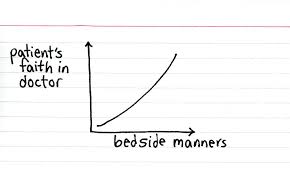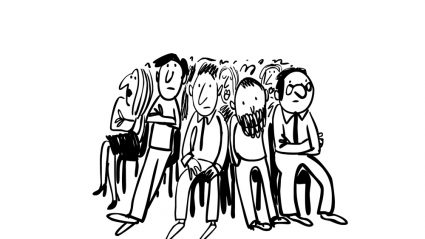 Some weeks ago, (for what turned out to be a very minor problem) I needed to attend the walk-in dermatology clinic at the Hammersmith Hospital. Managing to lose myself in endless corridors, I arrived late to find I was number 43 in the queue of other patients.
Some weeks ago, (for what turned out to be a very minor problem) I needed to attend the walk-in dermatology clinic at the Hammersmith Hospital. Managing to lose myself in endless corridors, I arrived late to find I was number 43 in the queue of other patients.
Not surprisingly, since illness is not defined by age or background or country of origin or demographics, the patients were a diverse group and, I assume, equally diverse as ‘patients’ -easy, difficult, resistant, uncommunicative (many not speaking English).
They shared, again I assume, some level of concern ranging from mild to extreme and fearful.
This is where an astonishing demonstration of the perfect bedside manner came in.
As my number was called out, I realised that there was a single consultant only and that I was the 43rd of her diverse patients towards the end of a long day. In the ten minutes or so of consultation, I experienced something akin to a pitch, a good one.
 In the first moments, she somehow ‘read’ me as an individual making the all important connection on introduction that reassured me about what might follow. In ancient rhetoric this is the appeal of ethos.
In the first moments, she somehow ‘read’ me as an individual making the all important connection on introduction that reassured me about what might follow. In ancient rhetoric this is the appeal of ethos.
Her professional skill and expertise, her reasoning- logos- solved the practical problem.
But it was her emotional quality, the appeal of pathos, that even in the restraints of a ten minute doctor/patient meeting, inspired as well reassured this patient.




